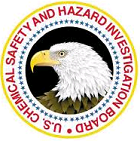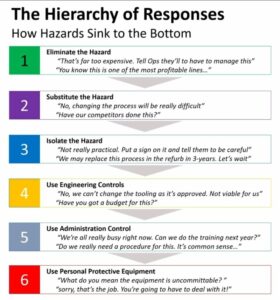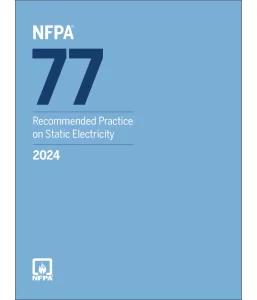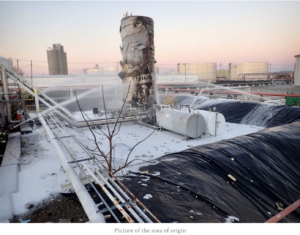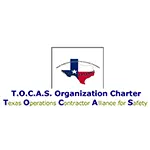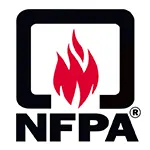CLICK HERE to Renew your Membership
CLICK HERE for a NEW Membership
CLICK HERE to see eligibility requirements for FREE Membership
If you have any questions, please contact me
SAFTENG has:
- Over 18,000 categorized unsafe acts/conditions and accident/injury photos
- Over 1,500 ppt's & doc's in the SAFTENG Library
- Over 4,000 Technical Articles on Process Safety, Emergency Response & OSH topics
- Over 450 videos (those not allowed on YouTube Channel)
Many THANKS to my NEW Members and those who CONTINUE to support SAFTENG:














March 13, 2025
Fire Severely Burned an Employee and Resulted in $350 Million in Damages The CSB released its final investigation report into the November 19, 2023, fire at the renewable diesel facility in Martinez, CA. The incident seriously injured one employee, who suffered third-degree burns over most of his face and body and resulted in approximately $350 million in property damage to the facility. ...
Read More
March 13, 2025
We MUST never be too confident of our written SOPs/JSAs. There is a good reason why “Administrative Controls” are down on the Hierarchy of Controls. When we think our SOPs/Plans are infallible, our workers will show us a thing or two… And when we investigate adverse events and this leads us to “failure to follow SOP/Training, etc.”, please remember this funny clip, as...
Read More
March 13, 2025
Victor Dearman Jr. CIRO, CRST No, it doesn’t involve anything with refrigeration. Same equipment, the same people, and a better layout to improve efficiency. So why would an MOC be required if it doesn’t impact refrigeration/PSM? Well, we have to think a little beyond equipment changes in the refrigeration system for a moment, or procedural changes, etc. that we normally think about. And...
Read More
March 13, 2025
Many workplaces struggle with one of the most critical elements of any attempt to manage safety and health via a safety management system – Incident Investigations. From the struggles of getting personnel to REPORT incidents (including near misses) to management recognizing these reports are GIFTS handed to us! But what normally happens, is we get employees reporting and we lose a lot of credibility...
Read More
March 13, 2025
I like the fact the thieves wore “high vis” clothing to make themselves look “legitimate”. But as the story points out they were getting injured in arc flash events. I support Hi Vis workwear, as it can’t hurt to be more visible in a busy workplace, especially with a lot of mobile equipment around. My issue with high-vis requirements is that far too many think it’s some type of visible...
Read More
March 13, 2025
Common root causes of incidents are: (in no specific order)
…
HomeRead More »
Read More
March 13, 2025
This is another Top 10 question on flammable liquids safety I get from clients, cold calls, referrals, and friends. Most are familiar with the testing limits for path to ground on bonding/grounding stations of 10/25 ohms. In my previous post tonight I explained where these 10 and 25 ohm limits came from and how they are essential very LARGE SAFETY MARGINS for our systems. When we look at NFPA 77 (2024)...
Read More
March 13, 2025
Theoretically, a resistance to ground of 1,000,000 ohms is considered capable of dissipating a static electrical charge. So why then does my safety program (and NFPA 77) require a resistance to ground of 10 or 25 ohms OR LESS, depending on the metal used in my system? (e.g. end-to-end resistance of a bonding wire should be less than 10 ohms for COPPER and less than 25 ohms for STAINLESS STEEL) Well,...
Read More
March 12, 2025
Volume 2 covers 25 serious chemical incidents in 14 states: Arkansas, Alabama, California, Colorado, Connecticut, Illinois, Louisiana, Mississippi, Nebraska, Nevada, New Mexico, Ohio, Oklahoma and Texas. These serious incidents resulted in 7 fatalities, 23 serious injuries, and approximately $1 billion in property damage. Link to Volume 2: http://www.idevmail.net/link.aspx?l=1&d=86&mid=421120&m=2672...
Read More
March 12, 2025
On January 7, 1983, at approximately 12:15 am EST, a massive explosion, ignited by an overflowing gasoline storage tank at the Texaco storage facility in Newark, NJ, and a nearby incinerator, destroyed three tanks, killing one person and injuring 24, while the blast was felt up to 100 miles away. Cause:The explosion was said to be caused by a human error; specifically, workers failed to monitor a pipeline...
Read More
March 12, 2025
Providence Fire Department Field Notes Date: 26Dec2024 Time: 15:04 Address: 130 Terminal Rd Incident No.: 2024-45273 Investigator: Eric Pedro SUMMARY On December 26, 2024, at approximately 15:30 hours, Fire Investigators from the Providence Fire Department responded to 130 Terminal Road to conduct a fire scene investigation. Investigators determined the fire originated in a distribution tank...
Read More
March 12, 2025
Gasoline (UN1203) is a NON-conductive flammable liquid. These liquids, as all liquids, generate static electricity as they flow through hoses, piping, and free fall into tanks and containers. Since the liquid is non-conductive, it can not conduct the static charge to the hose/pipe/container so the charge can be dissipated to the “ground”. Authorities say quick work by staff helped ease...
Read More

